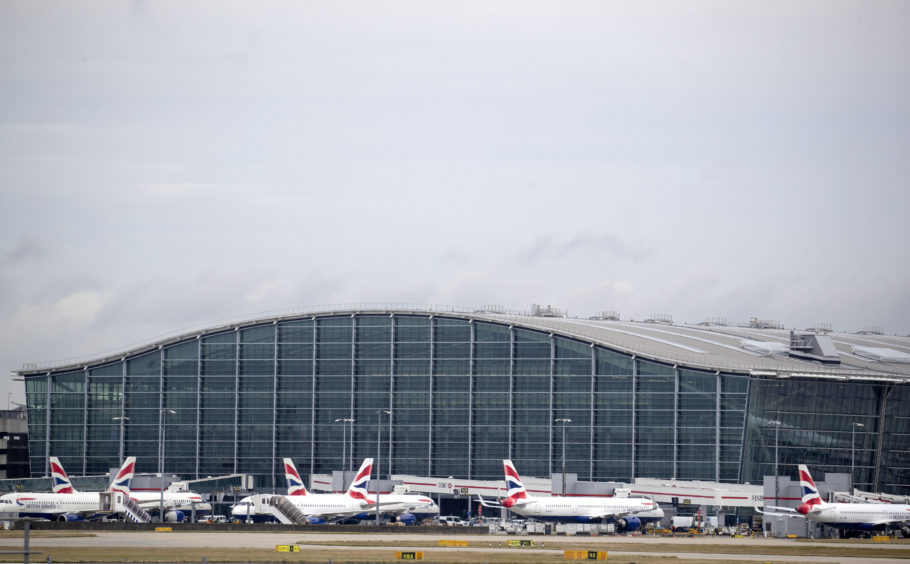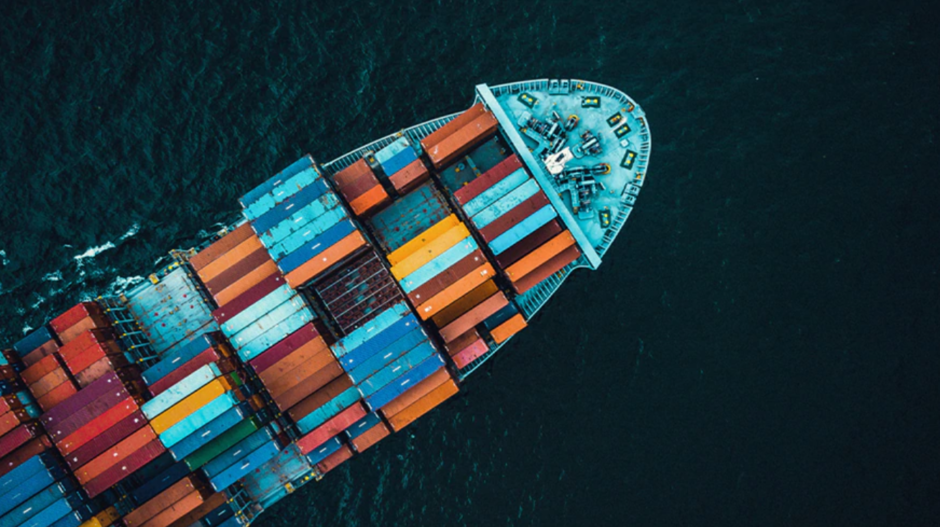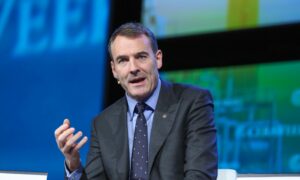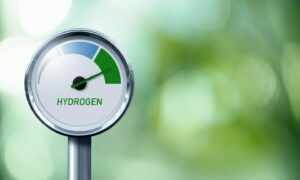
Advancements in international trade and travel in the last century mean that many enjoy a life that would have once been unimaginable.
But the widespread use of planes and ships brings with it one major issue.
Shipping and flying currently accounts for about 3% of the world’s CO2 emissions. Flight schedules in the UK alone put around 37 million tonnes of carbon into the atmosphere every year, based on 2019 figures.
Simply stopping the use of aeroplanes and vessels is not an option, so Westminster has committed to putting the UK at the “forefront” of low carbon travel.
Ministers have pledged to invest in research and development (R&D) to drive the creation of sustainable aviation fuels (SAF), while a Jet Zero Council has also been launched to promote the adoption of new technologies.
Joining Energy Voice’s Ed Reed to pick the bones out of point six of Westminster’s 10 Point Plan – jet zero and green ships – are Mike Parr, EY Parthenon partner, Jacob Sterling, head of decarbonisation at A.P. Møller – Maersk, and Chris Gear, project director for the Aerospace Technology Institute’s (ATI) FlyZero initiative.

“There’s a chicken and egg dilemma”
Both the shipping and aviation industries are likely to continue to grow in the coming decades, making the need for decarbonisation even greater.
It’s a “pretty significant” challenge and one that’s likely to require the brightest and best minds, as well as a lot of cash.
FlyZero, which is the ATI’s project to explore the design challenges and market opportunity of decarbonising aviation, is currently focussed on “two primary areas”.
Gear said: “One of those is SAF and the other is a zero emission aircraft. I’m focused on the latter, looking at the different fuels that we could use to actually fly those vehicles.
“It is a big challenge. The energy required getting a plane into the air and flying for long distances is a step change away from the cars that you see on the road today, which are fully electric. Our biggest obstacle is finding an energy source”
As part of its 10 Point Plan, Westminster promised to invest £15 million into FlyZero, which brings together about 100 industry experts.
On the shipping side of the issue, Sterling said that, with the climate emergency growing, things needs to start moving “pretty soon” if the industry is to survive.
He added: “We’ve been looking into what can we do now – a fuel like methanol can actually be scaled today. In the future, we’ll probably look at ammonia and other fuels, but there’s big question marks about how to get started on this.
“We can see customer demand picking up and we can also see potential fuel producers are gearing up for this challenge.
“There’s a chicken and egg dilemma. As a shipping line, it’s pretty hard to decide to build a ship with an engine that, currently, you can’t get any fuel for. Likewise, why would you scale up clean fuel production when there are no customers?”
Nevertheless, A.P. Møller – Maersk is leading the field and is planning to build its first “carbon neutral vessel” in the next couple of years.
Parr added: “What’s happened recently with Covid has accelerated a lot of these decarbonisation trends. Both the consumer and the government intent is going to be to accelerate that process to carbon neutrality.
“The challenge in aviation, which is a sector I’m more familiar with than shipping, is similar. The chicken and egg analogy is there as well. For an aircraft to fly transatlantic you need to be able to fuel up on both sides – the supply is not there in a consistent manner globally yet.”
“We see customer demand for green shipping picking up exponentially”
As already mentioned, decarbonising the shipping and aviation sectors will require technology, expertise and vast sums of money.
Government support will be needed, not only to pick up some of the bill, but also to pull the levers and set the regulations needed to foster change.
And the rewards for getting it right are clear, with estimates the SAF industry could support more than 5,000 jobs.
Sterling said: “We see customer demand for green shipping picking up exponentially right now. But, at some point we will need regulation to kick in because not all our customers will want to go down that route voluntarily.
“There’s currently quite a significant price difference between the new green fuels and the old fossil fuels – that needs to be levelled out by regulation at some point. Hopefully it happens sooner rather than later because that could really help the transition.”
Parr said that government intervention is an “absolute requirement”, but that there is a lot aviation and shipping can do as well.
He said: “On SAF, a big challenge is just the inability to generate sufficient volumes at the moment. Creating that supply chain and, from an airline’s perspective, having sufficient confidence in that supply chain is going to be a key driver of being able to get to the next steps.
“A concerted effort is needed to put the infrastructure in place, put the supply agreements in place and move forward so that they can operate on a routine basis with SAF.
“British Airways has had partnerships and operated flights using it, but that’s on a test basis rather than a full scale operational basis – they need to keep accelerating and focusing on that.”
“We need to retrain quite a few of our engineering community”
Aviation and shipping support thousands of skilled, well-paid jobs in the UK, from engineers to consultants.
Maintaining and growing the number of positions, as the industries drive for decarbonisation is fundamental to Westminster’s aspirations.
For that to happen, Gear says there will need to be to retrain workers, particularly those involved in engineering.
He said: “To refuel with liquid hydrogen or SAF, there will be different requirements and we’re trying to analyse those impacts, as well the infrastructure that will be needed.
“There’s a lot of challenges. On the capability in the skill set, we need to retrain quite a few of our engineering community. But, we also need to develop new engineering capabilities on the chemistry side.”
Gear added: “One of the roles of FlyZero is to look at the UK. What is our technology capability? What’s our industrial capabilities? What are our skills are in the workforce? And what some of these new solutions will be, in terms of the fuels and also the equipment that might be used in an aircraft.”
As with much of the 10 Point Plan, point six is going to drastically alter the way people approach air and sea travel.
But decarbonisation of planes and ships is essential if standards of living are to keep improving across the globe.
There’s still work that needs to be done to find the optimum solution and many of the details will be thrashed out along the journey.
It’s likely to be a bit of a bumpy ride, but the destination is one that has to be reached.
EY Insight from Mike Parr
The need for government intervention in the energy transition for the aviation and shipping industries is abundantly clear. These industries are significant contributors to carbon emissions but face complex challenges to realise decarbonisation, which mean many industry participants are targeting 2050 for carbon neutrality.
Both sectors were capital constrained even before the Covid-19 pandemic. The impact of the pandemic has been dramatic and the future outlook is uncertain, both with respect to the future shape of each industry and the timing of the recovery. This squeezes further the capital, technology and eco-system available to support the transition to sustainable fuels.
In the face of such challenges, a co-ordinated international effort is required to invest in the decarbonisation acceleration so that we can avoid the emergency that both industries face with their fuel consumption.
Subscribe for free to the 10 Point Pod series and listen to the jet zero and green shipping episode in full.
Catch up with last month’s green public transport discussion, featuring Olympian Chris Boardman, here.











